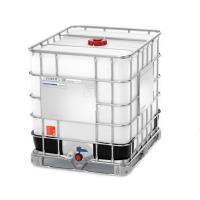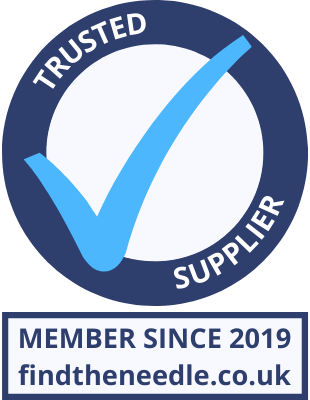 Add My Company
Add My Company
Sign In

Intermediate bulk containers (IBCs) are reusable.
This is one of the reasons why they can be such a cost-effective method for storing and transporting bulk materials such as chemicals.
There are two types of reused IBCs available on the market; reconditioned IBCs and rebottled IBCs.
WHAT IS A RECONDITIONED IBC?
A reconditioned IBC is one that has been previously used but is then professionally cleaned to prepare it for re-use.
This involves cleaning the entire IBC, including its inner plastic container bottle and its steel frame.
Once done thoroughly, the reconditioned IBC is inspected before being approved for use.
WHAT IS A REBOTTLED IBC?
A rebottled IBC is essentially a combination of new and old.
The inner container bottle of the IBC is new and unused, but the outer structure is a good quality used cage.
WHAT ARE THE BENEFITS OF RECONDITIONED AND REBOTTLED IBCS?
As a means of storage and transportation, IBCs are cost-effective.
With a 1,000 litre capacity, the intermediate bulk container enables the shipment of large quantities of materials such as chemicals, liquids, food ingredients, grains and animal feed.
Businesses can consolidate their shipments, then easily redistribute the contents of the IBC into smaller units.
With a universal design, reconditioned and rebottled IBCs are highly versatile in what they can carry.
Their durability also makes them well-suited for storing and transporting hazardous materials, and a double valve system makes them easy to both fill and dispense products from.
IBCs are easy to move, position and stack because they are resilient and cube-shaped. You can use a standard forklift or pallet-jack to handle them.
They are inherently stable for stacking, helping to ensure warehouse efficiency and safety.
SAVING ON COSTS AND REDUCING WASTE
IBC container bottles are made from tough, durable HDPE (high-density polyethylene).
They are designed to withstand harsh environmental conditions, while being light enough to be easy to handle and transport.
A reusable part, it can offer significant savings to businesses using this type of container.
It also helps support the sustainability of the whole supply chain, while reducing the amount of content that is routinely wasted.
This is because the container is easy to drain completely, leaving no quantity of the product trapped inside.
THE REBOTTLED ALTERNATIVE TO RECONDITIONING
Reconditioned IBCs are a popular form of storage for non-hazardous liquids and general applications.
Reconditioned IBCs are carefully cleaned and checked as part of the reconditioning process, but this does not mean they comply with stringent food regulations.
There can be risks associated with the materials they previously contained.
Therefore, although reconditioned IBCs are highly versatile, they are not suitable for storing and shipping food and drink items.
An alternative is the rebottled IBC.
This combines a completely fresh, unused container with a reused outer metal frame.
It takes advantage of the relative cost-effectiveness of reconditioning, but combines it with the safety assurance of a new container.
IBCs are increasingly popular in the food and drink industry because they allow for the efficient shipment and safe storage of perishable, consumable items.
The availability of rebottled IBCs widens the choice and availability of this adaptable storage method for food and drink producers, manufacturers and suppliers.
GET IN TOUCH
For more details about IBCs and what you can use them for, please telephone 0333 987 4565, email sales@itppackaging.com, or complete our online contact form, and we will be in touch as soon as possible.
For more information on What is the difference between a reconditioned and a rebottled IBC? talk to ITP Packaging Ltd
Enquire Now
List your company on FindTheNeedle.

